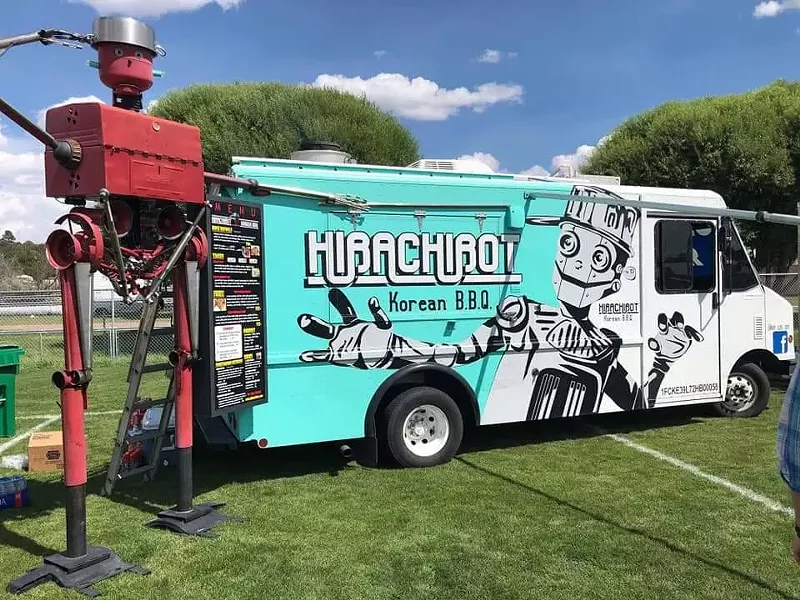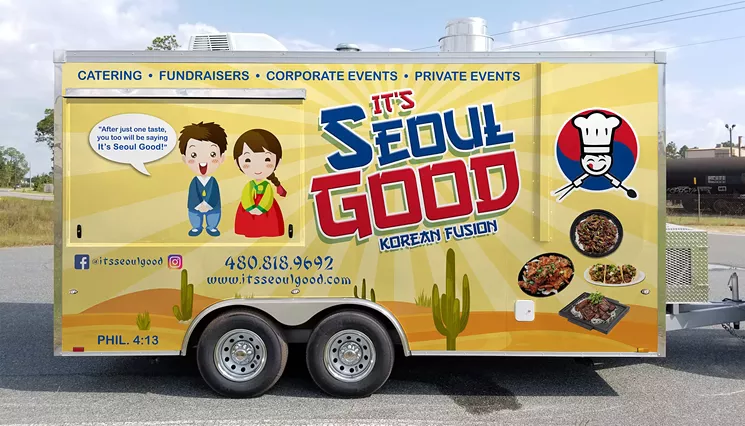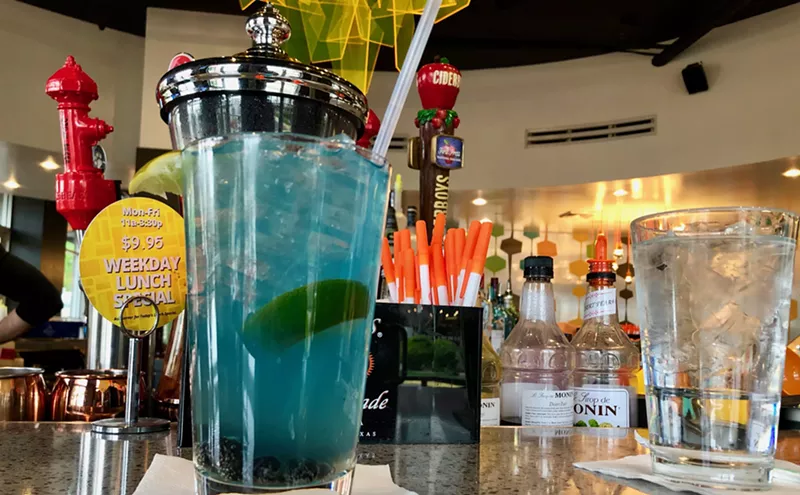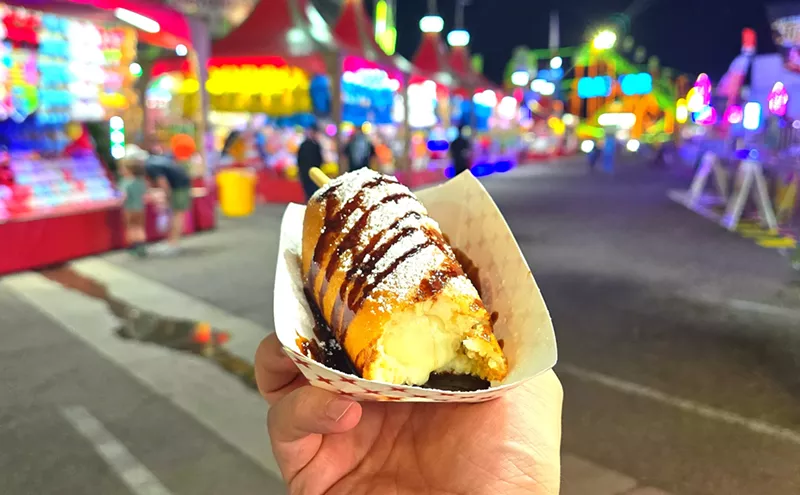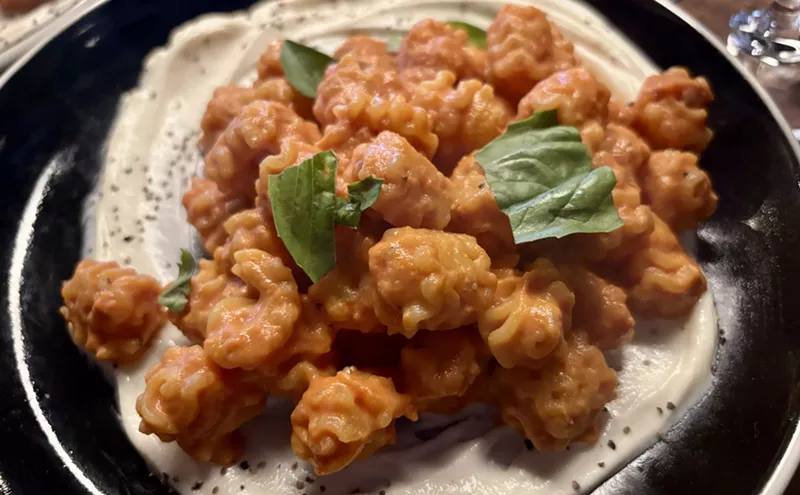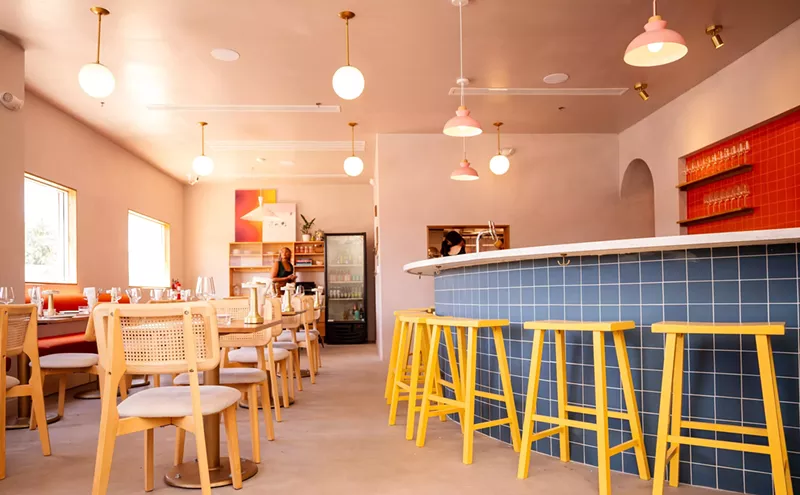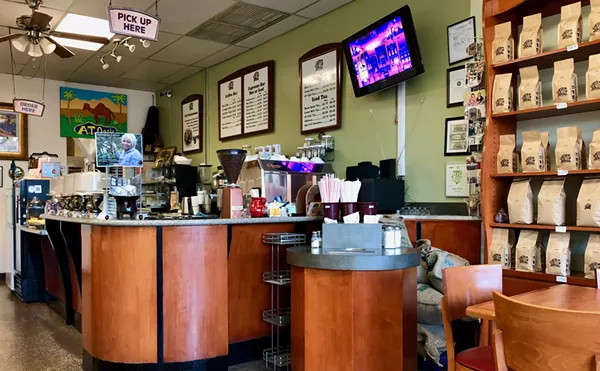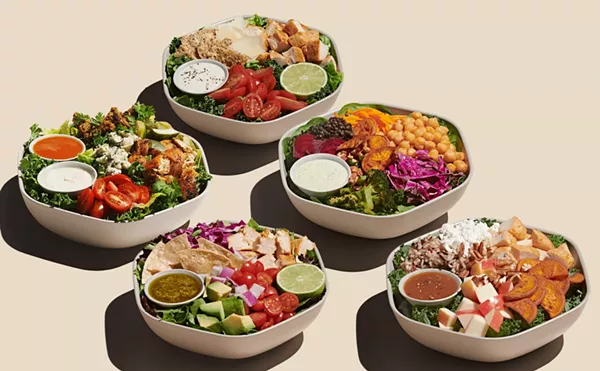Schenck emphasizes that losing a child does something to you. You build walls. She says owning a food truck business, though, forced their family to break down those barriers." Now, after building Hibachibot, a food truck serving Korean barbecue, for the last five years, she says they don't want it to end.
Her concern about the food truck business is understandable. The COVID-19 pandemic adversely affected more than 60 food trucks in the Phoenix area. "Our industry relies on large crowds, whether through special events, weekend gatherings, corporate lunch stops, backyard weddings, and parties," she says. With shelter-in-place orders and social distancing, it is hard for food trucks simply to sell their product.
Detroit Coney Cruiser food truck owner Jake Kloster echoes this concern. "All our events we rely on were canceled. Events from the middle of March through the end of May were canceled in a matter of weeks," he says. "That's scary."
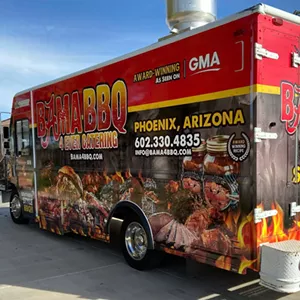
Before the pandemic, Everson funded a custom-built trailer with a full kitchen.
Bama BBQ 4 Ever Catering
It's evident the financial impact is severe. Jerry Looker, owner of the It's Seoul Good food truck, says, "Business is incredibly lean. Income is down about 80 percent." Many food truckers look to make revenue during their peak season, which is from February through May. Looker adds people don't necessarily gather outside of food trucks during the summer months for obvious hot weather reasons.
However, creativity has become a result of this adversity — which is precisely what food truckers in the Phoenix area are doing to survive.
Looker knew he had to get imaginative, and decided on a different approach. "I started reaching out to homeowner associations and parked my food truck somewhere in the community," he says. "People can call in their orders and we hand them their food during a specific period of time."
Back at Detroit Coney Cruiser, Kloster went for a similar strategy. He's reaching out to apartment complexes and HOA communities. Though the food truck routine is tough to restructure, Kloster says, "I always try to find the positive in situations."
At Hibachibot, Schenck and Everson have decided to do family pack meals. "I send out a link on our Facebook page and it brings up Street Food Finder and shows the different packages that we have available," she says. "We set up a designated time for pickup and families give us their name and we hand them their bag."
If sanitation is a concern, these food truckers want walk-ups to know safety is a priority.
Even prior to the pandemic, "food trucks were scrutinized more than brick-and-mortar establishments," says Looker. "In some ways, it is a much safer option with a limited number of employees handling the food, an open-air environment, and every food trucker has taken the necessary steps for minimal contact and cross-contamination."
Schenck is taking her sanitation procedures seriously. "We use a bleach hot water solution to wipe down all surfaces throughout the service," she says. Gloves and masks are being used as well. Detroit Coney Cruiser has added more hand sanitizers. "We do not allow people to pump the sanitizer. We do it for them, limiting the number of hands on the bottle," Kloster says. Almost all of the transactions are cashless besides.
However, our food truckers are experiencing noticeable changes in their customers' demeanor.
"People are more scared to come out or even walk out of the house," Looker says. According to Everson, customers who do wait in line at Hibachibot are practicing social distancing. Kloster has added signs about social distancing and placed them in front of the Detroit Coney Cruiser truck. "Not only are we trying to keep the public safe, but we are trying to remain safe for ourselves," he says.
Overall, Schneck worries what will become of the food truck industry.
"For some of us, this industry was more than a job. It was our dream, it was our healing, it was our way to make a mark in the world that we all worked hard to accomplish," she says. "Now it seems an uphill climb to get it back."
"For some of us, this industry was more than a job. It was our dream, it was our healing, it was our way to make a mark in the world that we all worked hard to accomplish," she says. "Now it seems an uphill climb to get it back."

